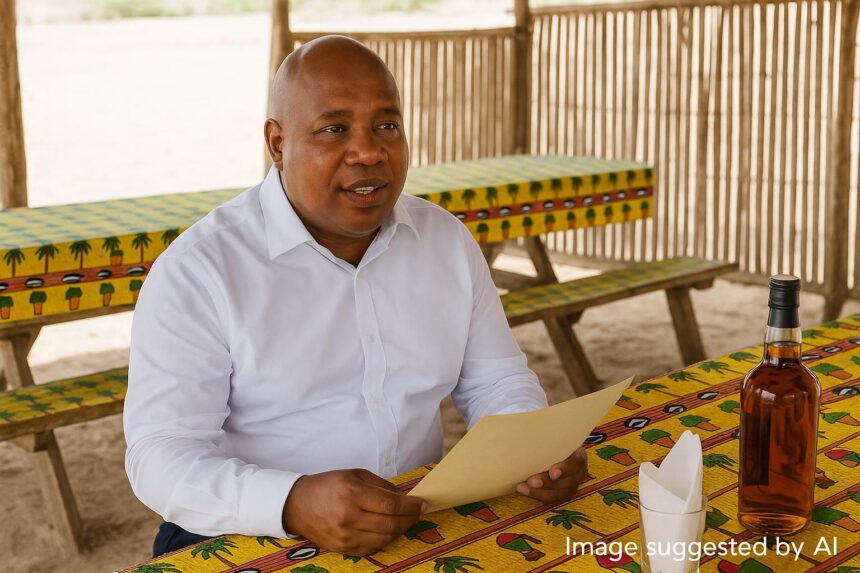Nationwide Prefect Appointments 2025
On 31 March 2025, President Denis Sassou Nguesso signed decree 2025-87, naming fifteen prefects across Congo-Brazzaville, an act that, according to the Ministry of Territorial Administration, represents the most comprehensive reshuffle of provincial leadership in a decade.
Government communicators portray the shake-up as a decisive step toward the longstanding objective of bringing public services closer to citizens, echoing provisions of the 2015 Constitution that encourage stronger departmental governance structures.
Ten prefects were reconfirmed, guaranteeing institutional memory, while five newcomers—including Marcel Ganongo in Bouenza and Habib Gildas Obambi Oko for the nascent Congo-Oubangui department—introduce fresh administrative perspectives.
Congolese media such as Les Dépêches de Brazzaville and state broadcaster Télé Congo highlighted the diversity of professional backgrounds, ranging from fiscal administration to security services, underscoring the executive’s preference for polyvalent profiles capable of crisis management.
Observers from the United Nations Development Programme in Brazzaville note that effective prefects are pivotal for achieving Sustainable Development Goals at the local tier, particularly those linked to health, water, and disaster resilience.
Continuity and Renewal in Key Provinces
Brazzaville, the political capital, retains Gilbert Mouanda-Mouanda, a former police commissioner credited with coordinating the city’s pandemic response; sources within the municipal council cite his steady hand as vital for large-scale infrastructure projects slated through 2027.
In Pointe-Noire, Pierre Cébert Ibocko-Onanga is expected to leverage prior experience at the hydrocarbons ministry to mediate between industrial operators and coastal communities affected by offshore production.
The Likouala prefecture, rich in peatlands, welcomes Jean Pascal Koumba, whose forestry background aligns with the government’s pledge to expand carbon-credit partnerships after the 2023 COP28 deliberations.
Local civil society representatives, interviewed by Radio Moka, cautiously praised the inclusiveness of female appointments such as Micheline Nguessimi in Niari and Alphonsine Akobé Opangana in Nkeni-Alima, noting gradual progress toward gender-balanced governance.
High-level continuity nevertheless remains, with nine prefects belonging to the senior corps of administrators formed at the National School of Administration and Magistracy, guaranteeing familiarity with standardized procedures and fiscal discipline frameworks.
Decentralization as Policy Pillar
Congo’s decentralization roadmap, adopted in 2018 and updated last year, prescribes progressive devolution of budgetary powers to departments, coupled with enhanced monitoring by the Court of Accounts to prevent misappropriation.
The newly appointed secretaries general, named on 6 May 2025, are expected to operate as chief operating officers, complementing political leadership by prefects with technocratic oversight over procurement, payroll, and digital record-keeping.
Finance Minister Ingrid Olivia Ebouka-Babackas recently reiterated that, from 2026, a portion of oil-derived revenue will be earmarked directly to departmental treasuries, placing further responsibility on local administrators for prioritization of social expenditure.
A forthcoming partnership with Morocco’s Institut Supérieur de l’Administration will offer mid-career training to departmental cadres, focusing on participatory budgeting and digital archiving, according to Deputy Minister for Capacity Building Juste-Olivier Mambou.
International partners, including the African Development Bank, view the prefectural nominations as a governance benchmark linked to tranche releases under the 2024–2027 country program, according to a statement by regional director Serge Nganzi.
Diplomats from neighboring Gabon and the Central African Republic privately describe the appointments as a stabilizing gesture, given that several departments border zones where transnational trafficking and refugee flows require coordinated oversight.
Operational Challenges and Opportunities
Beyond symbolism, prefects face logistical constraints: according to the 2024 budget annex, only nine out of fifteen departmental capitals possess fiber-optic connectivity, complicating the rollout of e-governance platforms planned by the Digital Economy Ministry.
Funding streams remain a concern; the 2025 finance law allocates 18.4 billion CFA francs for departmental logistics, yet the Association of Prefectural Secretaries estimates annual needs at nearly double, hinting at future budget amendments during the October parliamentary session.
Road access during the rainy season remains precarious in Sangha and Plateaux, where Edouard Denis Okouya and Jean Jacques Mouanda must coordinate with Chinese-funded contractors to secure key corridors before the 2025 cocoa harvest.
Security considerations also persist; the Pool department, led by Jules Monkala Tchoumou, continues disarmament initiatives with former Ninja militias, supported by the national committee for DDR and a 20-million-dollar EU grant.
Yet opportunity accompanies challenge; the Kouilou prefect Paul Adam Dibouilou is drafting a coastal tourism blueprint aimed at attracting cruise operators rerouting from the Gulf of Guinea due to piracy concerns further northwest.
Regional and Diplomatic Implications
From a diplomatic lens, several new prefectures, notably Congo-Oubangui and Djoué-Léfini, straddle river systems shared with the Democratic Republic of Congo, raising prospects for joint environmental monitoring protocols under the Congo Basin Blue Fund.
French embassy officials, speaking on background, see the appointments as reinforcing Brazzaville’s intent to present a reliable counterpart for climate-finance negotiations ahead of the June 2025 Paris summit on tropical forests.
With prefects and secretaries general now installed, attention turns to measurable outcomes; analysts will track tax collection, enrollment rates, and conflict incidents as barometers of the administration’s promise to render governance more proximate and responsive in the year ahead, before a wider provincial council evaluation scheduled for December.






















